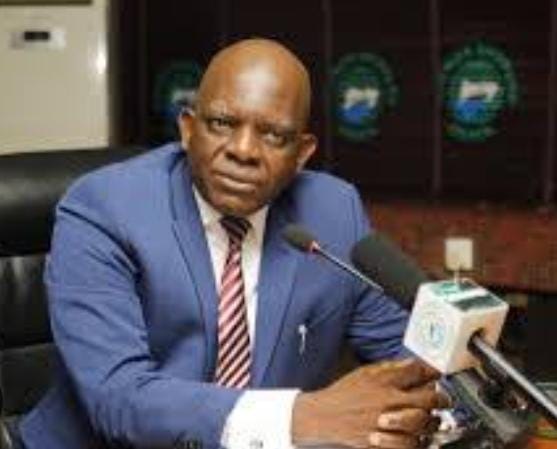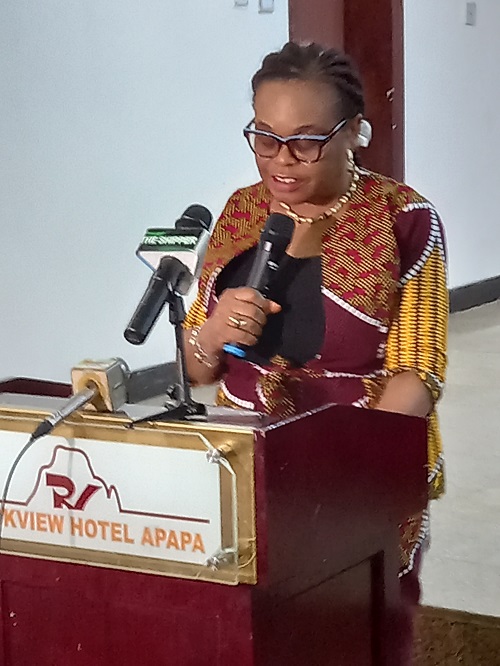Akutah: How Nigeria Can Benefit from Elevation to WCO Council Chairmanship

*Says it is moment to cement domestic institutions with clear, enforceable laws towards competition
• Enjoins stakeholders to elevate economic regulation as collective priority to facilitate trade, drive economic growth
•

By Francis Ugwoke
The Executive Secretary, Nigerian Shippers’ Council, Dr. Pius Akutah, has said that Nigeria’s elevation to the World Customs Organisation Council (WCO) Chairmanship should be seen as a moment of moral and political authority which can be used to cement the nation’s domestic institutions with laws that are “clear, enforceable and oriented towards competition” in the shipping/ports industry.
Akutah pointed out that such elevation was an opportunity to promote “transparency, customs trade facilitation, safety, labour stability and long-term national prosperity”.
Speaking on the occasion of the one day seminar organised by the League of Maritime Editors, with the theme, “Nigeria’s Chairmanship of WCO Council: The Impact on Nation’s Economy’, he said that though strong law is not an end in itself, it remains an instrument for creating predictable markets, protecting shippers and consumers as well as regulating providers and users of shipping and port services.
According to him, this will lead to attracting productive investments which ensure that public resources allocated to ports are used in ways that generate national income.
“Nigeria’s elevation to the WCO Council Chairmanship is a moment of moral and political authority. Let us use that authority to cement our domestic institutions with laws that are clear, enforceable, and oriented towards competition, transparency, customs trade facilitation, safety, labour stability, and long-term national prosperity”, he said.
Akutah who was represented on the occasion by the Director, Ports Regulatory Services, Mrs Margreth Ogbonna, congratulated the Comptroller General of the Nigerian Customs Service, Bashir Adewale Adeniyi, as the first Nigerian and one of the few Africans to head the WCO Council in its 73-year history.
He described the election as a landmark achievement for the Country and the Continent at large, adding that this rare achievement must have been attained out of his shared determination to reposition the Nigeria Customs Service by introducing reforms which has positively impacted on the nation’s economy.
“The WCO Council Chairmanship is an opportunity not only to elevate Nigeria’s voice at the table but to reinforce the domestic reforms that would enable our ports and our trade corridors to serve the Nation’s economy more efficiently and fairly”, he said.
Akutah in his paper titled ‘The Impact of Strong Law in Achieving Effective’ Port Economic Regulation in Nigeria’, argued “that no matter how strong and beautiful our laws are, they cannot serve the purpose for which they were created without effective implementation measures”.
Noting that implementation does not take place in a vacuum, he emphasized that the critical stakeholders in the industry “must first acknowledge the binding force of these laws and accept that effective port economic regulation requires their full buy-in”.
“Only when stakeholders own the process and elevate economic regulation as a collective priority can we truly facilitate trade and drive economic growth”, he added.
He also argued that the regulator must also be perceived and respected as an impartial arbiter—ensuring equity and fair play among all industry players”.
“With collective commitment and trust, we can restore confidence in Nigeria’s shipping and ports sector, unlocking the vast potential of our marine and blue economy for national prosperity.
“If we do so, our ports will not only move more cargo; they will move our economy forward—our marine and blue economy sector will flourish and impact positively on the Nations economy”, he said.
Part of Akutah’s paper reads, “ Strong, clear, and enforceable laws are a prerequisite for credible port economic regulation.
“Competent laws — aligned with institutional capacity and enforcement — deliver measurable benefits: competition, investment, lower trade costs and predictability.
“ Nigeria’s new standing at the WCO should be matched by domestic legal reform and rigorous application to secure the full economic benefits of our ports.
“ Why law matters: foundations of predictability and fairness Ports are both marketplaces and bottlenecks. They are the focal point where public and private interests collide. Without clear rules, monopolies flourish, fees become opaque, concessions are abused and costs rise for importers and exporters. For example, cargo dwell time in Nigerian ports is among the lengthiest in West Africa, averaging 20-25 days, compared to 3-7 days on average in places like Cotonou, Tema, or Durban. This delay is largely due to bureaucratic bottlenecks, overlapping agencies, and lack of automation. The long dwell time increases demurrage and storage costs for importers/exporters.
“But a strong law within the maritime industry anchors:
“ Institutional independence: Regulators insulated from political pressure, like the UK’s Office of Rail and Road, which supervises port competition rules independently 1 . • Customs reform and trade facilitation: The WTO Trade Facilitation Agreement, which Nigeria has ratified, shows how binding commitments to transparency and simplified border procedures can reduce delays and costs”






